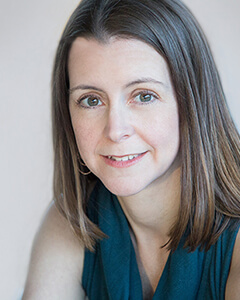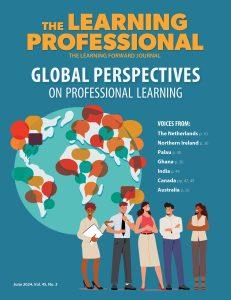We all know that change takes time, but do schools have that time? With students and schools facing urgent, widespread challenges, it can feel like the pace of many improvement approaches is simply too slow. And yet, it’s clear we get nowhere when we take a scattershot approach to teaching and learning strategies. There’s no meaningful progress without thoughtful planning, implementation, and assessment. So what’s an improvement-minded educator to do?
Take heart from the advice of Timothy Knowles, CEO of the Carnegie Foundation for the Advancement of Teaching: “Don’t mistake gradual for inconsequential.” Speaking at the 10th Carnegie Foundation Summit on Improvement in Education on April 24, Knowles addressed a common critique of improvement science approaches, which identify, test, and refine specific change ideas: that they are not transformational because they are incremental. That’s a false dichotomy, he said. It’s the step-by-step changes that create the transformation.
Nowhere is that more clear than in professional learning. The work of building educators’ capacity to improve teaching and learning is not a quick fix. Practice doesn’t change overnight, especially for the kinds of changes that really matter, like shifting mindsets about students’ capabilities and unlearning ineffective methods of reading instruction. As Knowles put it, “Transformation takes time. Emancipation, voting rights, the end of apartheid, civil rights – in every case, it didn’t happen overnight.”
We see the power of ongoing processes of learning and improvement over and over again, in professional learning communities, networks, and other improvement structures that have professional learning at their core. It’s not just the specific changes in practice that matter, but the spirit of ongoing reflection and critical inquiry that educators learn to apply to all of their practices. That’s why continuous learning is baked into all of Learning Forward’s Standards for Professional Learning, from Professional Expertise to Culture of Collaborative Inquiry to Evidence and beyond.
One of the ways that gradual improvement processes lead to transformation is through building on one another’s learning. To do that, we need to share our stories. It’s not a luxury or a self-indulgence to spread the word about what works and to take the time to read and listen to others’ stories. It’s a necessity. If we let good ideas and successful efforts stay in their own boxes in their own communities, their impact is powerful but limited. But when we share them, we build on each other’s lessons and we all climb higher.
If we let good ideas and successful efforts stay in their own boxes in their own communities, their impact is powerful but limited. But when we share them, we build on each other’s lessons and we all climb higher. Share on XDuring the Carnegie Summit, nearly 2,000 education practitioners, leaders, researchers, and supporters came together to share stories of how thoughtful, incremental change is making a difference for students. Many of the improvement ideas were contextually specific and responsive to community needs, which in many cases was a secret to their success. But participants talked excitedly about applying the lessons to their own settings. Question-and-answer sessions and hallway conversations were peppered with phrases like, “that reminded me of when we…” and “what if we…”
Learning Forward helped spark and facilitate such conversations by sharing stories from The Learning Professional, our flagship bimonthly magazine. We recently partnered with the Bill & Melinda Gates Foundation on an issue about Improving Together, which highlights lessons from Networks for School Improvement. The foundation supported these networks over several years to develop, test, learn from, and refine strategies to improve outcomes and educational pathways for Black and Latino students and students experiencing poverty. All attendees of the Carnegie Summit received a copy of The Learning Professional, and they also had the chance to attend two sessions with authors who shared their stories and insights about improvement and then facilitated round-table discussions to dig into the details of what they did, what they learned, and how others can benefit from it.
Some attendees gravitated toward a discussion of how two schools in California participated in a “live case,” where one school visited the other and engaged in an intentional process of questioning, listening, and applying that school’s keys to success with their own students. They considered doing their own live cases and some started planning next steps.
Other attendees learned about how a school principal in Texas empowered a teacher leader to own the school’s learning about improvement science, and share that knowledge with new teachers in order to keep the work moving in the face of high teacher turnover. They reflected on how they might cultivate teacher leadership in their own varied settings.
Other groups explored how a New York-based organization uses a set of “thinking routines” to integrate equity into their practice, and asked how they might adapt one district’s tool for assessing whether students are on track to high school graduation.
The changes these educators discussed were focused and specific. They were gradual. But they were certainly not inconsequential. Those changes are already making a difference, not only in the communities where educators tested them, but in the communities of summit attendees, who brought them home and are now turning the gears of improvement themselves.
Sharing stories like these is important. It has always been and will always be important to Learning Forward and to the professional learning field. They build our knowledge, and they remind us about progress when we start to get discouraged by the pace of change. As Timothy Knowles said, “Of course we want the work to move faster, further, but we cannot allow ourselves to be swept away by the American appetite for quick fixes and silver bullets – or we can be assured that transformation won’t come.” In the meantime, he reminded us, we should make room for joy and celebration of progress. Improvement isn’t just about what we’re going, it’s also about where we’ve come from and how we’re getting from there to here, and ultimately, beyond.







